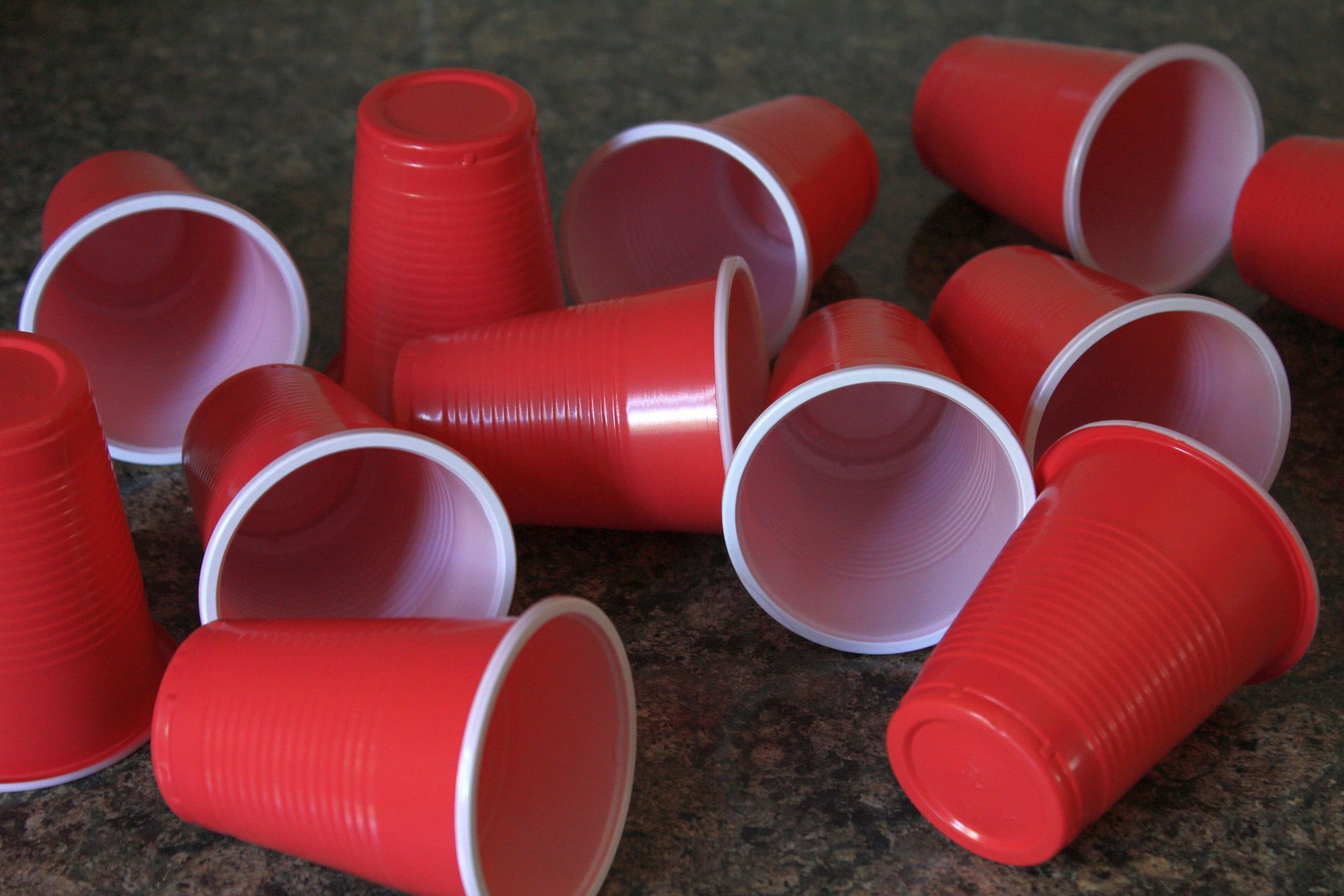Richard Rohr often talks about the “order, disorder, reorder” pattern in the Bible and the Gospel, in our own personal development, in our relationships, and in other parts of life. Order (Creation or innocence) gives way to disorder (the Fall, loss of innocence, brokenness), and then by the grace of God, to a reorder (Redemption/Resurrection and wisdom). This year-long monthly series will attempt to choose one area of life to focus on acts of reordering. Whether it’s by caring for a loved one, ministering to someone in need, prioritizing the health of our environment and all created things in it, or stewarding our blessings, we can bring redemption, resurrection, and reorder through simple, everyday acts. If you’re interested, I would love for you join me in a one-year experiment. What will it do in our homes, workplaces, communities, and ecosystems if we invest energy and love into deliberate acts of redemption?
April: Reduce Plastic Pollution
Last year, we published Ashley Morgan’s overview of a timely study on the impact of microplastics. As she covered, not only is plastic pollution a large-scale problem, but its impact on the human body is still relatively unknown. We’re ingesting about a credit card’s mass worth of plastic each week, and it’s likely messing with various systems in our body.
Plastic has been and can be a very useful invention. It’s widely used in medicine, consumer electronics and appliances, and even home insulation. Not only is it unnecessary to get rid of all plastic use (though maybe someday we will develop a superior replacement), but it’s likely impossible for us urbanized 2021 humans.
And yet, most of it cannot be recycled (even if it has a recycle icon on the bottom!). Most of it sits in landfills in poor countries, gets burned and poisons the air, or floats around in the ocean.
For April, the challenge is to choose three ways you can reduce your consumption of single-use plastic. Below are some ideas. If you have some of your own, please share them in the comments! I recommend choosing two or three practices rather than trying to do all of them at once; incremental change is highly underrated.
- Use your own grocery bags. Keep them in your trunk.
- Put all of your produce together in one or two plastic produce bags instead of using a different bag for each fruit or vegetable.
- Shop at farmers’ stands when possible. (Here’s a link for my South Florida neighbors.) Bring your own bags.
- Do you buy soda? More municipalities recycle aluminum cans than plastics. Glass bottles are also a better choice than plastic. Make sure you’re rinsing them, both to prevent contamination (and therefore dumping) and to prevent roaches and ants in your house (eek).
- Check your city’s website for what plastics they do recycle. Number 1 is a safe bet, and some cities also recycle number 2. Others are not as commonly recycled, or it may be impossible to do so.
- Swap out bottled water for filtered water. Check out carbon filter pitchers, faucet-install purifiers, and other options.
- Do you eat lunch at work? Bring your own utensils instead of using disposable plastic ones.
- Reuse plastic takeout containers. Many of them are microwaveable and dishwasher safe. (My favorite takeout restaurants all seem to use these.)
- For hardcore conscientious types like my grandmother and my boyfriend, you can reuse Ziploc bags that are in good shape. (This is probably the only thing they have in common. They rinse and dry the bags and reuse them multiple times. I’m serious.) You can also buy washable substitutes, but maybe wait until you’ve used up your current stash of disposables.
- Whenever it makes sense to buy a bigger package of something, whether it’s fruit or hand sanitizer, save a little plastic packaging by refilling smaller bottles or freezing any leftover strawberries (currently in season!).
- You can also donate to a relevant nonprofit and support the work they do to tackle plastic pollution.
The bottom line: Focus on reducing single-use plastics.






